26/05/2023
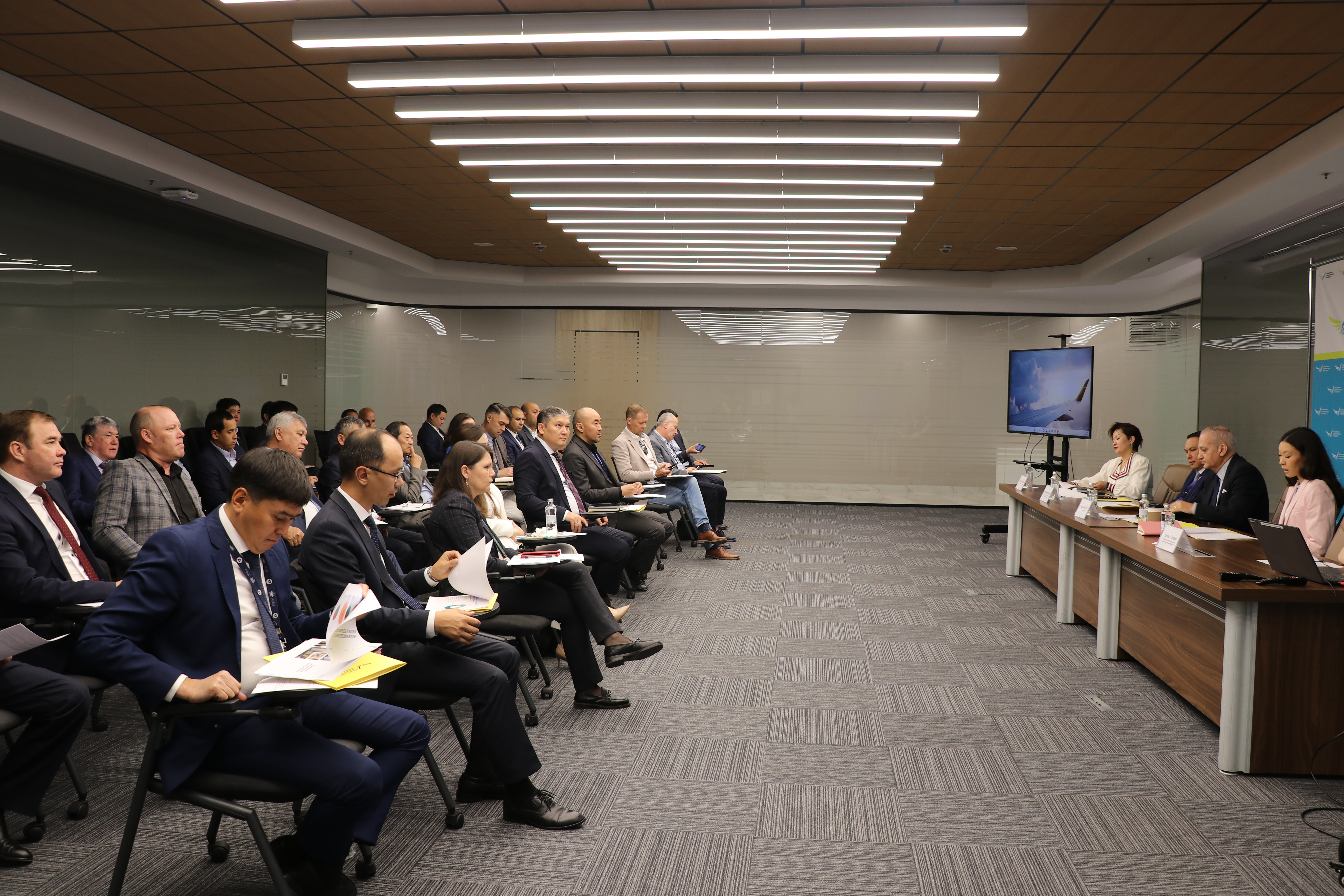
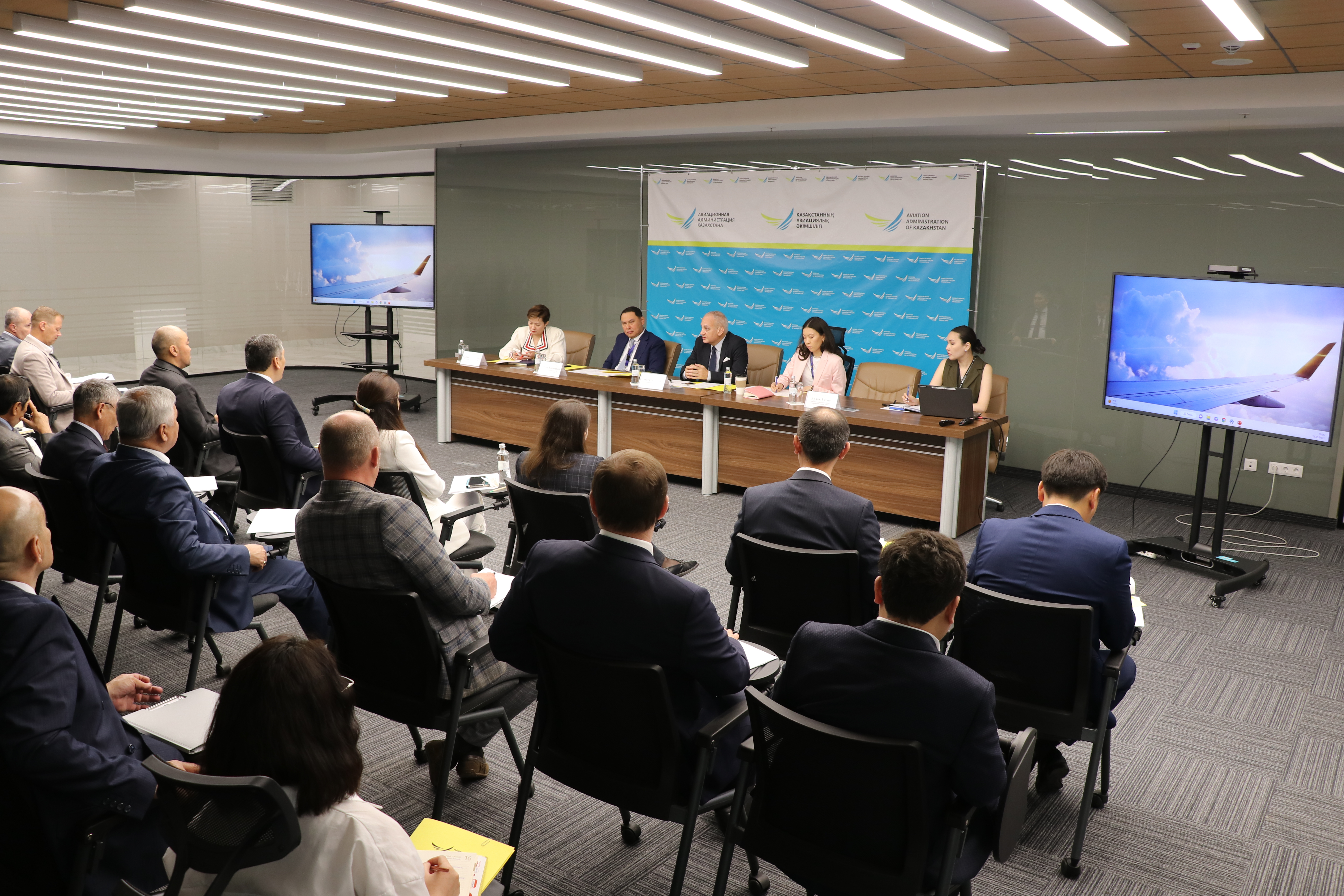
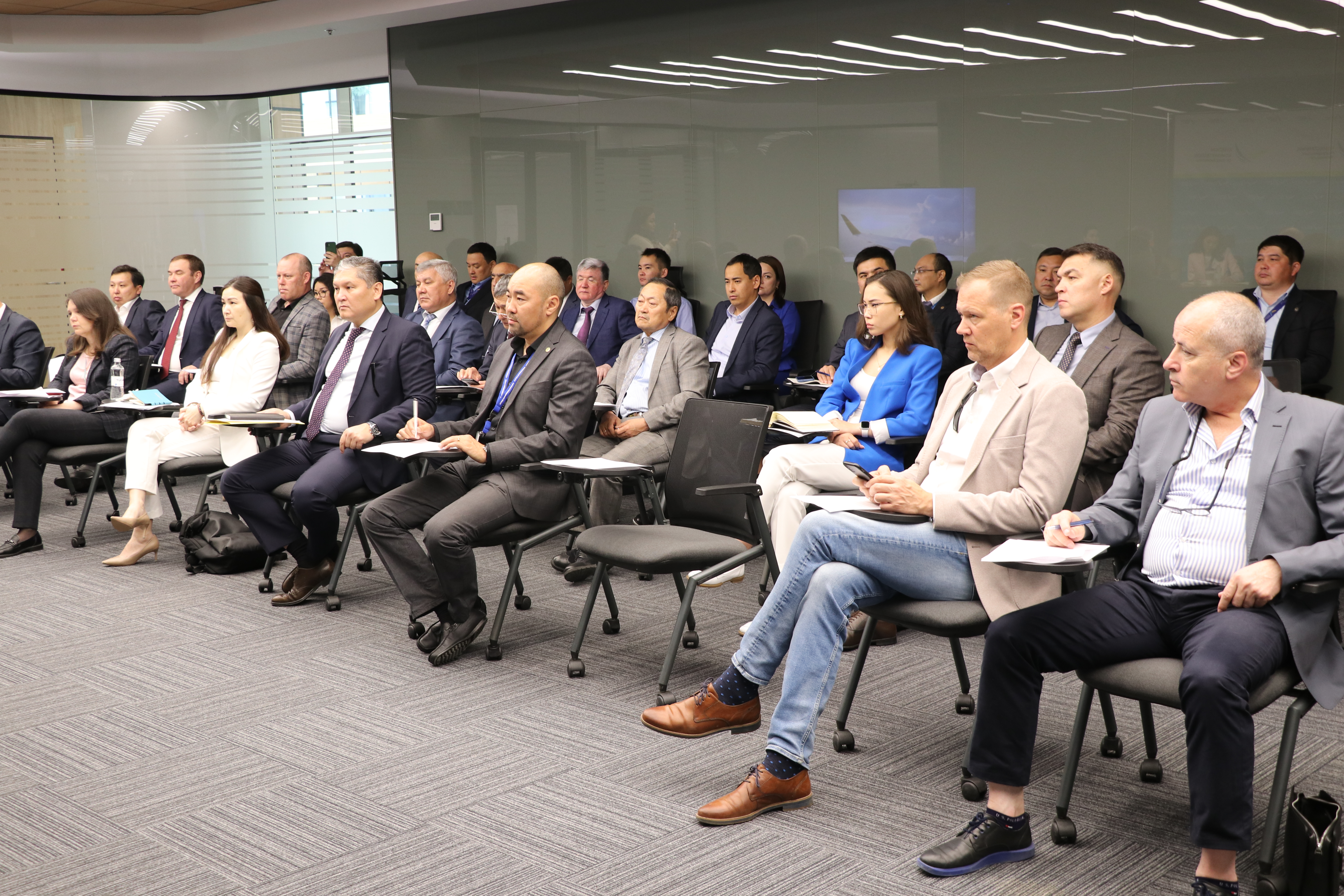
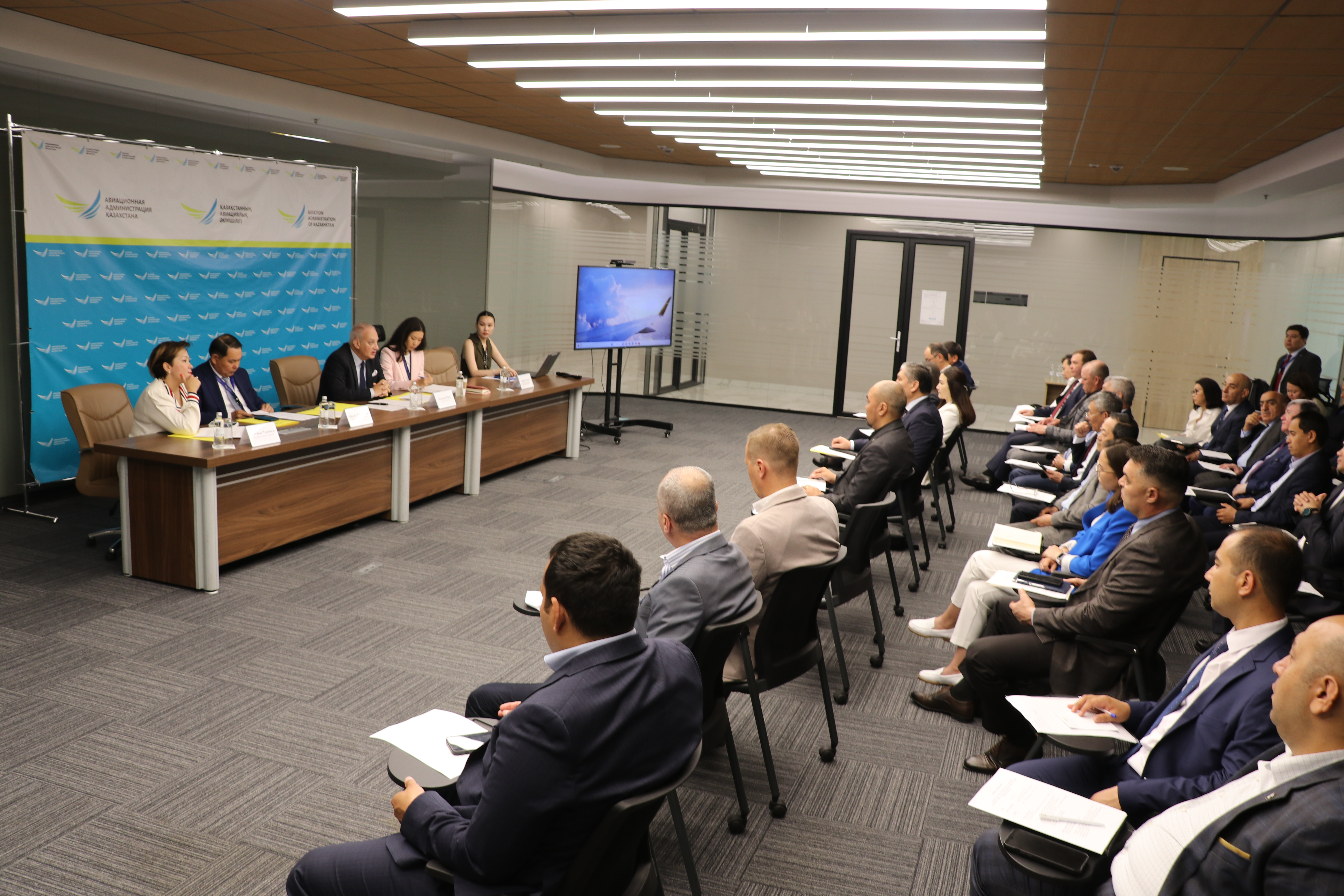
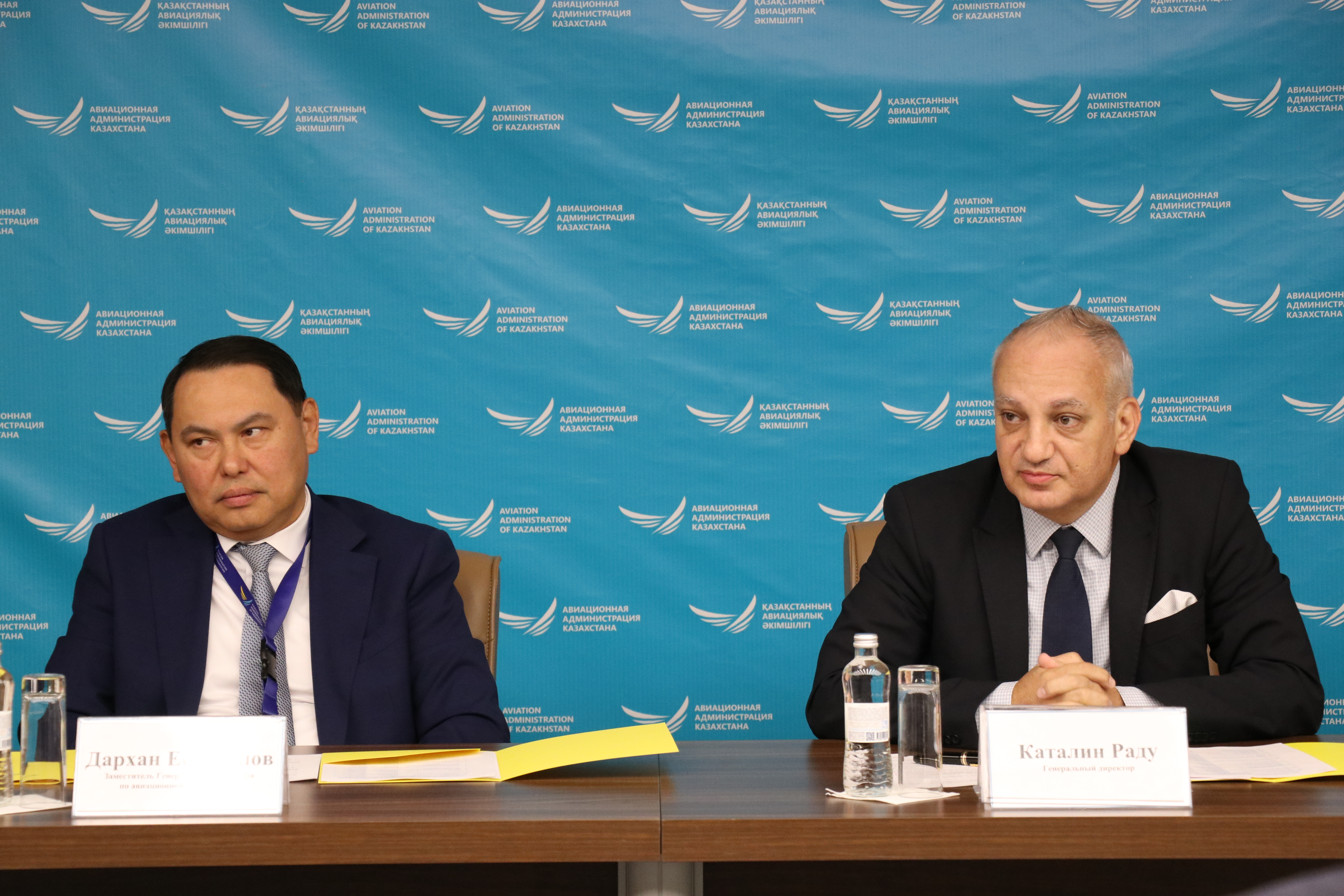
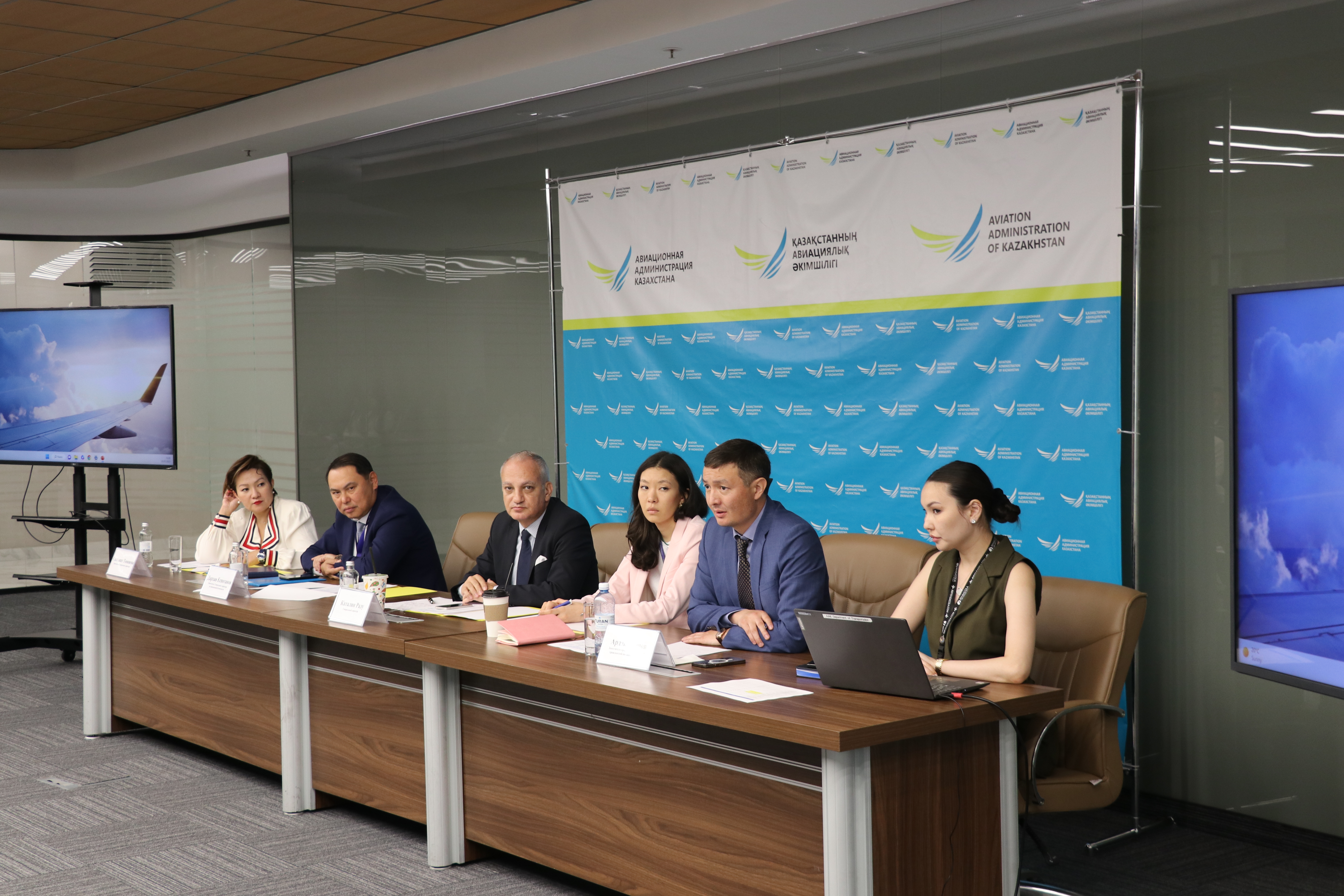
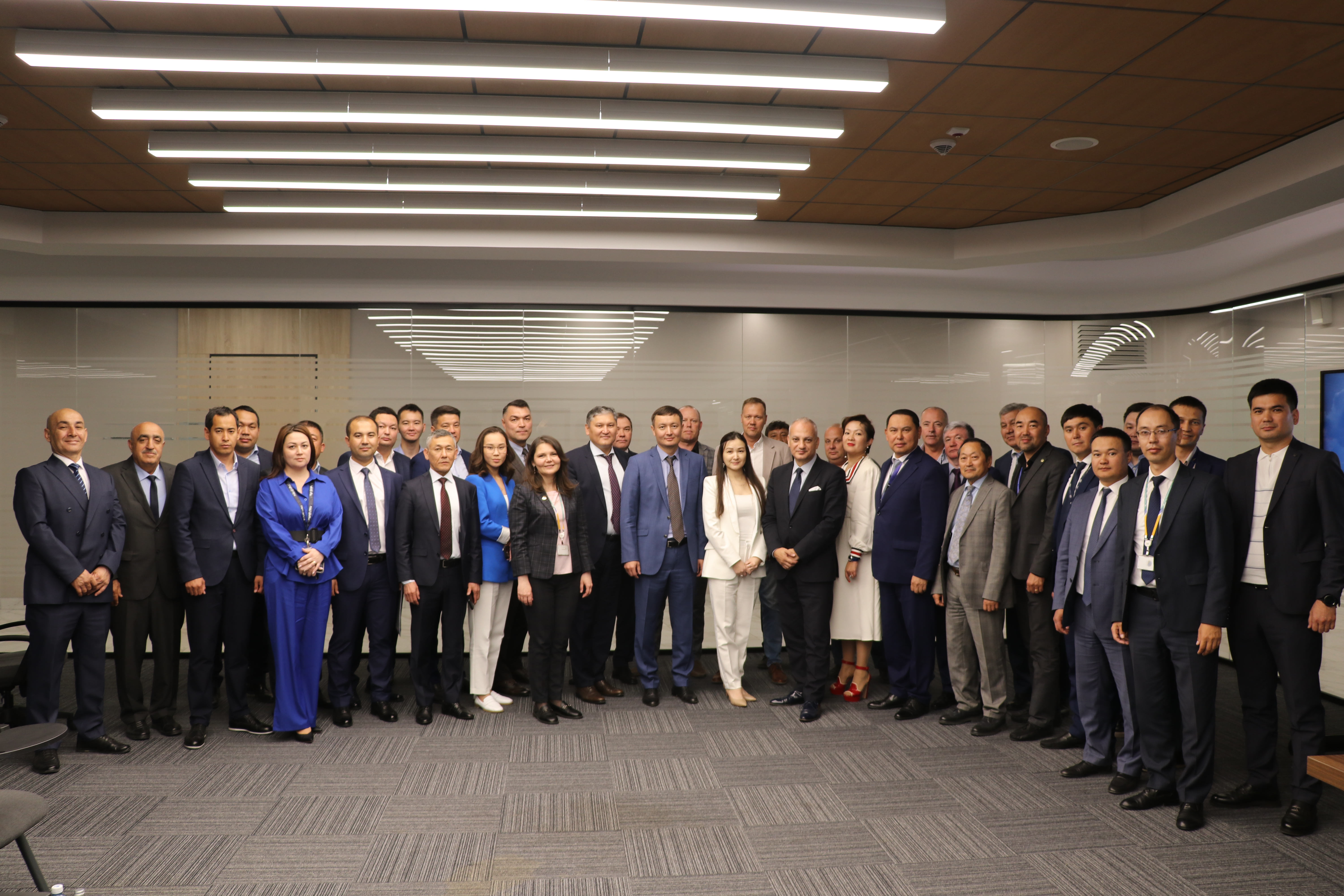
In Astana today, a discussion on guaranteeing flight safety, aviation security, and the quality of passenger services at Kazakhstan airports was held. The conference was attended by the representatives of the Civil Aviation Committee, the Aviation Administration of Kazakhstan, and officials from the country's airports.
During the discussion, it was observed that, to date, the quality of passenger service is becoming increasingly significant as passenger attention to the quality of their services grows year after year. In this regard, the Administration has identified the major issues influencing passenger service quality.
It should be noted that, in order to improve the quality of services and create comfort for passengers, a new passenger terminal has been built in Uralsk, the passenger terminal in Kostanay has been rebuilt, work on the passenger terminal in Kyzylorda has begun, the passenger terminal in Shymkent will be operational by the end of the year, and and the construction of new passenger terminal in Almaty will be completed by the second quarter of 2024.
Furthermore, during the discussion, particular emphasis was placed on the importance of digital transformation in Kazakhstani airports. To simplify formalities and reduce waiting time in lines, new technologies for passenger service and baggage registration, such as biometrics, self-check-in counters, drop-off counters, and others, must be introduced to reduce passenger congestion during peak hours.
During the discussion, the issue of strengthening control over the transit of dangerous goods on board aircraft was also highlighted. It was underlined that the transportation of dangerous items is a specific activity in which all current procedures must be followed to ensure air transportation safety. Participants in the conference were informed about changes in regulatory and legal acts relating to the carriage of dangerous products, as well as the operation of airfields. There are intentions to make relevant adjustments this year that will include the establishment of administrative accountability for violations of dangerous goods transportation regulations.
Two initiatives are planned for this year to increase passenger service quality and cargo safety during transportation. In particular, the Aviation Administration of Kazakhstan, in collaboration with IATA, aims to host a workshop on the concept of "Level of Services" in June of this year, as well as a joint training with foreign airlines on cargo management, including the transportation of dangerous items.
In 2022, the CAC, with the support of the AAK, carried out work to amend the Law on the use of the airspace of the Republic of Kazakhstan and aviation activities, and regulations relating to airport operations in order to improve safety and for further harmonization with international standards. For the first time, Rules for Anti-Icing Protection of Aircraft on the Ground have been developed, completely revised and updated rules of Wildlife hazard management.
The issues of land zoning and the elimination of critical obstacles around the aerodrome shall be resolved, and for a successful solution, the interest and involvement of airports in resolving this issue is necessary. From 2023, all international airports are required to develop master plans containing detailed stages for the development of airport infrastructure, including land use planning for the aerodrome area.
The current state of infrastructure and special equipment at Kazakhstan airports, solutions to improve them, the lack of aviation specialists at airports, the timely elimination of discrepancies and violations identified during inspections, the opening of new aviation training centers, training courses for training airport specialists, and assistance in this matter by the AAK were also taken into account.
Catalin Radu, Director General of the Aviation Administration of Kazakhstan, stated that the Administration, as the country's focal point for aviation safety and security, has organized and implemented related work constantly and methodically.
In particular, the results of work over the last three years on aviation security were announced, as well as conclusions about the trend of reducing aviation security violations among actors in the civil aviation industry and improving the level of training and retraining of staff involved in the organization of aviation security and participants in the organization of flights at airports and airlines.
A conference on aviation security held in May in Almaty with the participation of Central Asian and Caucasus states was highlighted as a positive example of the diligent work undertaken in regional cooperation and formality simplification. A number of actual and significant decisions were taken to improve the level of interaction and collaboration, further organize and coordinating the work on aviation security.
The project to establish air connections between the United States and Kazakhstan was also highlighted; as part of this effort, the Astana and Almaty airports, the Aviation Administration, and the Transportation Security Administration of the United States are preparing for the successful conclusion of a TSA audit.
Work on implementing a project to establish a single-state operator of aviation security services is included. The Aviation Administration is implementing the project with the support of the Civil Aviation Committee to strengthen aviation security and compliance with ICAO standards and recommended practices.
Highlighting aviation security actions in Kazakhstan civil aviation demonstrates confidence in the proper direction toward a sustainable and high level of aviation security in the Republic of Kazakhstan.









